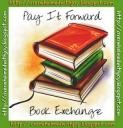(Excerpts from the excellent book Saint George and the Dragon, that I’ve mentioned before.)
After the tremendous battle to slay the dragon, the king says to George (not yet Saint):
“Never did living man sail through such a sea of deadly dangers. Since you are now safely come to shore, stay here and live happily ever after. You have earned your rest.”
How many times a day do we hear– or think– that? You’ve earned it!
Usually we hear it from people who want something from us. Mostly advertisers. Isn’t is sad we desire that “truth” so much we’ll even take it from those we know are seeking to manipulate us?
Do we ever stop to ask ourselves what we have done that’s so exceptional? Worked hard? Made some sacrifice (by which we usually mean we did something unpleasant, not that we gave our best)? Did more than someone else?
I always feel convicted when I read this bit in Luke 17, that ends with Jesus saying,
“So you also, when you have done everything you were told to do, should say, ‘We are unworthy servants; we have only done our duty.’ “
What others are or are not doing should make no difference to us and our rating of our work. That depends on my assignment– which will be different from anyone else’s. So what if I’m sometimes more hospitable, my husband more generous, than someone else? This makes us merely obedient, not exceptional or worthy of notice.
George could not, indeed had no reason to, deny the magnitude of what he’d done by freeing a kingdom. But even he would not accept the fairytale ending, because he knew his life was not his own.
“No, my lord, [he told the king] I have sworn to give knight’s service to the Fairy Queen for six years. Until then, I cannot rest.”
Any deed, no matter how great, will not change who we’ve bound ourselves to.
In the same way that there is nothing I can do to earn God’s love, there is nothing I can do to pay back my debt. Once I surrendered to Christ he doubly owns my life: not only by creating it, but by buying it back from where I sold myself to sin.
My time of service is my whole life– not measured just by the six years, or my parenting years, or my “office” years. Our lives are meant to be full of work. We’ve been given work, and somehow we are even offered the chance to joy in it.
(The concept of retirement— especially of retirement in the way we use it in
I pray we have the perseverance to get past merely what we want to hear, or do, and live our lives as they are: bound in the service of the one who gave his life for ours.





